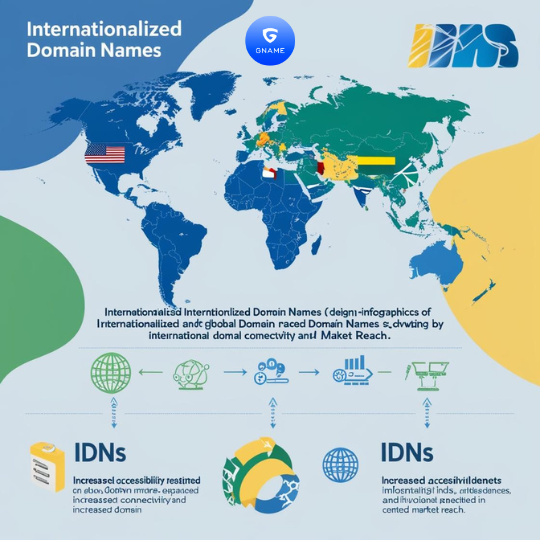In today’s digital landscape, the internet serves as a global marketplace where businesses and individuals seek to connect across various languages and cultures. Internationalized Domain Names (IDNs) play a crucial role in this connectivity, allowing domain names to include characters from different languages, thus making the web more accessible to non-English speakers. This blog post will explore the significance of IDNs, how they work, their benefits, and the challenges they present.

What are Internationalized Domain Names?
Internationalized Domain Names (IDNs) are domain names that contain characters from scripts other than the basic Latin alphabet, which includes characters from languages such as Arabic, Chinese, Cyrillic, and many others. The introduction of IDNs has been essential in enabling users around the world to navigate the internet in their native languages, thereby enhancing their online experience.
IDNs are constructed using a special encoding system called Punycode, which converts these characters into a format that can be understood by the Domain Name System (DNS). For instance, an IDN written in Chinese might look like "例子.测试" but would be represented in Punycode as "
例.政务
". This conversion allows the DNS, which traditionally only recognizes ASCII characters, to handle international characters seamlessly.
The Benefits of IDNs
Enhanced Accessibility
: One of the most significant advantages of IDNs is that they make the internet more accessible to people who speak languages that do not use the Latin alphabet. This inclusivity allows individuals to use domain names that reflect their language and culture, thus fostering a sense of belonging and identity online.
Improved Brand Recognition
: For businesses operating in multilingual markets, IDNs allow for brand consistency across different languages. Companies can create domain names that resonate with local audiences, improving their brand recognition and making it easier for customers to find and remember their websites.
SEO Advantages
: While search engines are becoming more adept at handling different languages and scripts, having a domain name that is relevant to local language searches can enhance a website's SEO performance. IDNs can help businesses rank better in local search results, driving more traffic to their sites from specific regions.
Challenges and Considerations
While IDNs offer numerous benefits, they also come with challenges that businesses and individuals must consider:
Technical Limitations
: Not all software and systems support IDNs. Some email clients, web browsers, and applications may have difficulty processing internationalized domain names, which could lead to accessibility issues for users. It is essential for businesses to ensure that their digital infrastructure can handle IDNs effectively.
Potential for Confusion
: The use of IDNs can lead to confusion, particularly if users are unfamiliar with how to type in different scripts. Additionally, there is a risk of phishing attacks where malicious actors could register IDNs that closely resemble popular domain names in different scripts, leading to potential security issues.
Legal and Regulatory Concerns
: The registration of IDNs may be subject to different regulations and policies depending on the country. Businesses need to be aware of these regulations and ensure compliance to avoid legal complications.























